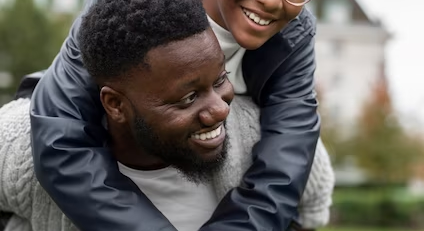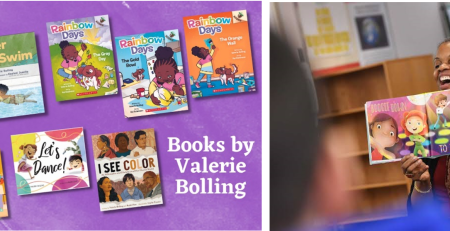Domestic Violence: Controlling and Losing Control
My husband and I enjoy watching The Equalizer together with Queen Latifah as the “by any means necessary” seeker of justice for the underdog. The shows have been presenting more and more home-hitting episodes, and this past week, they did a show on domestic violence. As soon as I saw the bruise, I knew what was coming. Didn’t know how the show would end, but knew it was not going to be pretty. At the end of the show, there was a message about domestic violence stats, and the number for a hotline.
No man has ever laid a hand on me, and I know that I am quite lucky in that regard. One third of all women in the US experience domestic violence. AND 25% of all men. That’s a lot of violence. That says so much about our culture. We come up with excuses. He was angry. He was blowing off steam. He was drunk. He didn’t mean it. He won’t do it again. Actually, yes, he probably will. You see, violent tendencies don’t go away. I know this because as a person with bipolar disorder, I have them. But you get them under control. And make sure you don’t lose control. Or you choose not to. Whether you’re trying to control someone else, or you’re working through something you saw as a child, or you come from a culture that finds it acceptable, or you’re dealing with mental illness or substance abuse, acting out violent tendencies and not keeping them under control is still a choice.
John Grisham wrote a book, A Time for Mercy, about a boy who killed his mom’s boyfriend because the man had regularly beat his mother, and this time, the boy thought she was dead. The man was a cop and a local hero. Everyone knew that he got violent when he got drunk… and everyone was okay with it. As far as they were concerned, “he was a good guy. The Best”. They wanted to crucify the boy who killed him. I actually couldn’t read the book.
Here’s the thing about domestic violence that hurts me so deeply. Some of the women who are being beaten look at it like a trade-off, because the man provides financial stability. Something they don’t know how to get by on their own. I visited a shelter for battered women once, many years ago. The shelter had apartments with bedrooms for the children, and I just didn’t get it. In my messed- up mind, I could not understand the level of support a woman, a mother, would need to get on her feet, find a job and provide for her family, to the point where she could be on her own if she had never done it before.
But on top of that, some women don’t leave because they are afraid of being killed. Forty-six percent of all female homicides are from intimate partners. Husbands, boyfriends, ex’s. And a restraining order often sets it off. Police are now trained to look for signs of strangulation with a domestic violence victim – a precursor to murder.
Back in 1994, Senator Joe Biden championed the “Violence Against Women Act”. It funds hotlines, shelters, domestic violence education and training for health professionals, law enforcement and the courts. More recent laws consider electronic stalking and sexual assault. Even though the title says “Women”, it is meant to protect people of any gender. VAWA opened the door to a conversation about domestic violence. And it has helped. Domestic violence rates were cut in half. One thing that really made a difference was “mandatory arrest”. Instead of requiring the victim to press charges, the police press charges. Over 75% of domestic violence victims say that this helps the victim.
So, what can YOU do if you know of a domestic violence situation? Open the door to a long conversation. Explain that you are concerned. Re-assure them that you will be discreet. If the conversation happens, listen. Without judging, offering advice or proposing solutions. Let them vent. Believe them when they expose the dark side of their attacker. Even if it shocks you. Validate their feelings: guilt, anger, despair, fear… love. Help them know that an abusive relationship is not normal. It may be something they grew up with, it may be all they know. Be prepared for them to have reasons for staying, even if those reasons make no sense to you. They may fear harm, they may love their partner and believe that s/he can change. They may think the violence is their fault. They may be trying to maintain a home for their children. They may be experiencing pressure from family or church to stay. They may not have the self-confidence to leave, and they may not have the financial means. Listen. And listen some more. Then give them the number to a hotline. Tell them there are shelters, social services, attorneys, counselors, support groups. If they are ready, help them form a safety plan. A place, to go, a prepared excuse, a code word to alert loved ones of violence, an escape bag, a list of contacts. Last, do not judge them for staying. Victims who leave are at a greater risk of being killed than those who stay. So, listen, and be available.
When I first wrote the story “Snapped”, I wrote it from the perspective of the perpetrator who completely loses control and hits his ex. And someone read it and said – no. It can’t end well. Domestic violence doesn’t end well. Well, I rewrote it. And now “Snapped” does not end well. At all. I still got criticism for the story. There should have been warning signs. No one just “snaps”. Well, there is a first time for everything. Sometimes it needs to be the last.











Comments (5)
Thank you, Loren, for writing the story, sharing your journey about becoming conscious about the various elements associated with domestic violence, and, sharing important information about what one can do when one encounters a friend, relative, associate in this situation. The more we educate ourselves and others, the more we can help to save lives.😌
You know, it’s funny. When I wrote the story, I’m not completely sure where it came from, but it needed to be on paper, according to the Muse.
You speak eloquently about the pits and perils of physical, domestic . There’s a whole other factor that plays in abuse , and that is psychological abuse. I don’t feel qualified to speak to psychological abuse, except it is the ultimate manipulation of someone., who preys on someone else’s insecurities , to the point where the “victim”feels hopeless, insecure, and weak, and is too afraid of leaving. I also recommend viewing the film “Women Talking”, it is quite compelling and thoughtful as well and is based on a true series of events.
Harriette, I need to work up to reading more about it. When I wrote this, I got a response from someone who had been through it. Apparently, it hit home. But it came out of me. The Muse is funny that way.
… [Trackback]
[…] Read More Information here to that Topic: afrobougieblues.com/domestic-violence-controlling-and-losing-control/ […]